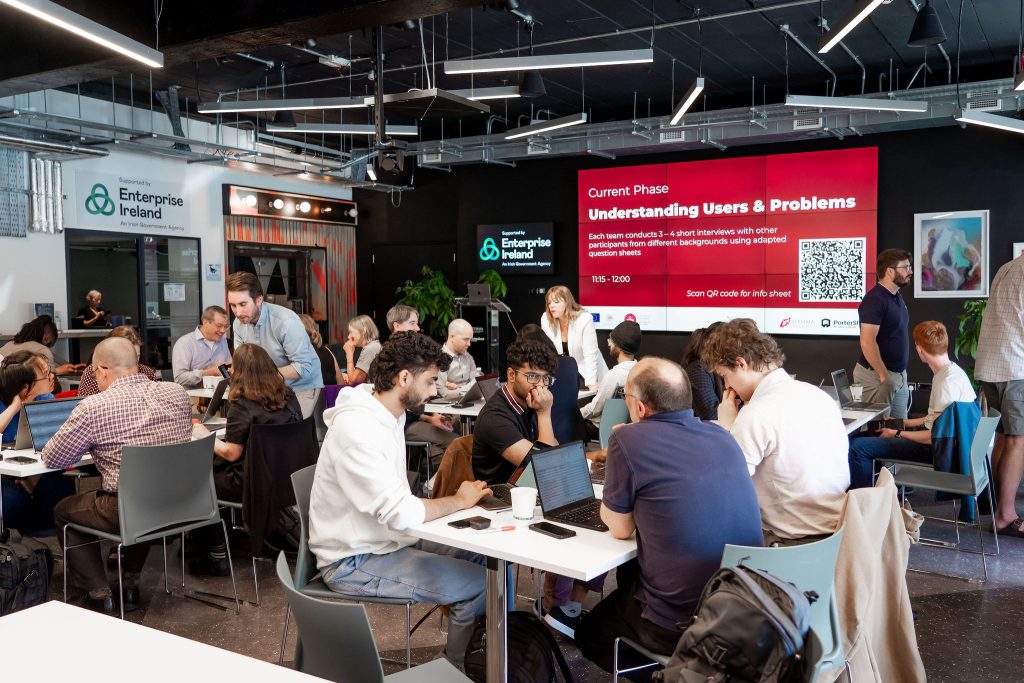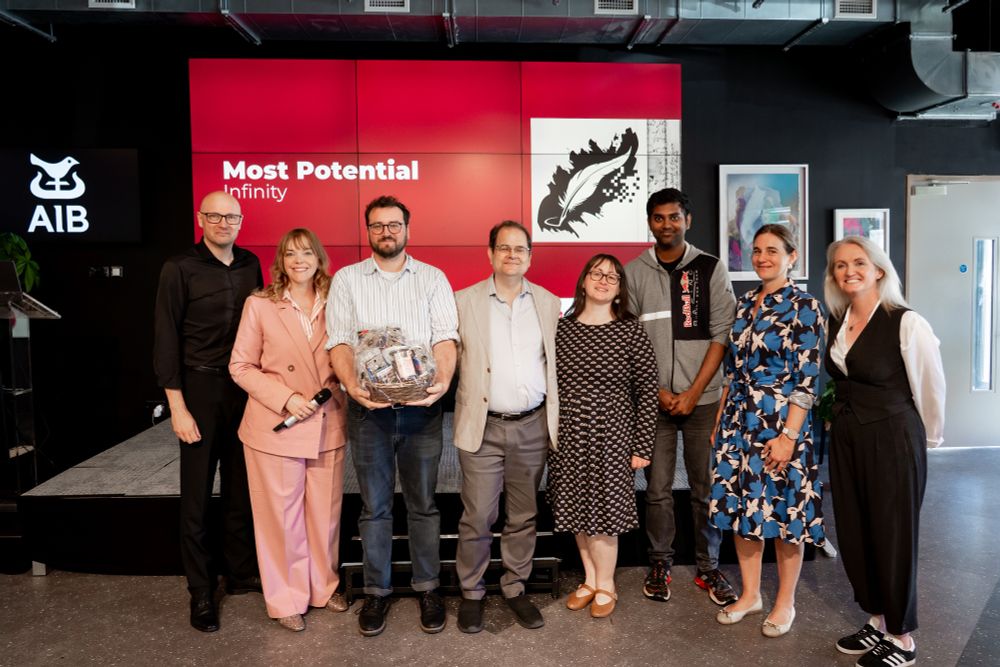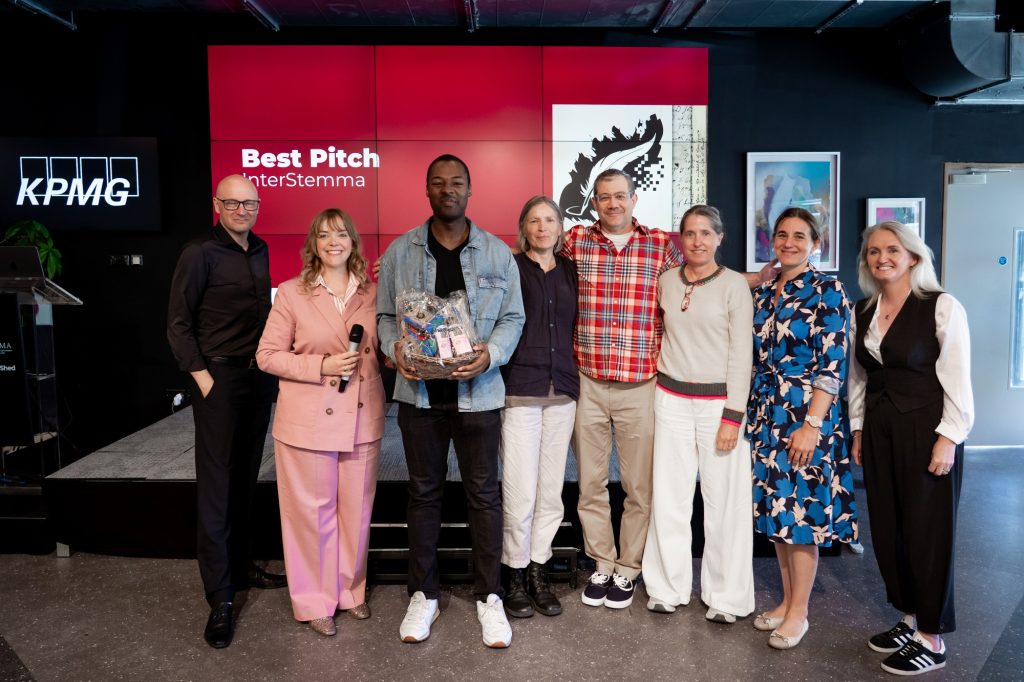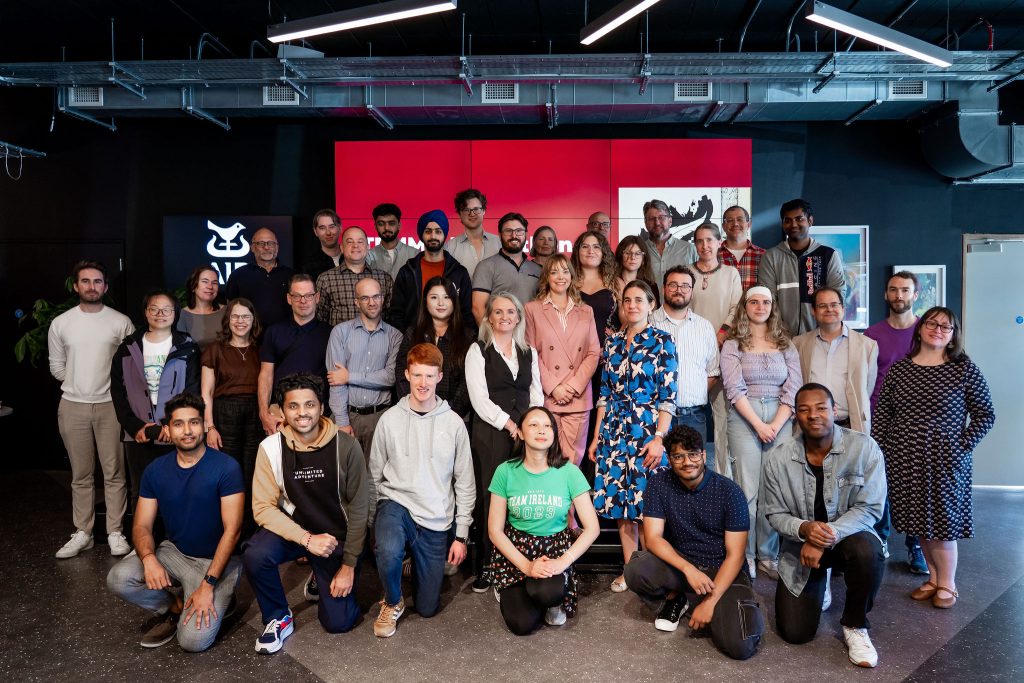STEMMA
Systems of Transmitting Early Modern Manuscript Verse, 1475-1700
College of Arts, Social Sciences & Celtic Studies School of English and Creative Arts

In a rare week of gorgeous sunshine, researchers from across the world visited Galway to take part in the STEMMA Hackathon, hosted at the PorterShed, a collaborative workspace for startups and entrepreneurs. From 6th to 9th July, the STEMMA team invited scholars to come and work with the current database in a hackathon event: with researchers from a variety of disciplinary backgrounds including manuscript studies, poetry, early modern history, digital humanities, and data scientists provided by our hosting partners, PorterShed, teams made up of a range of specialities were tasked with exploring the data and finding ways to identify patterns or anomalies (or other points of interest!) in the database.
With just three days to meet, identify a research question, produce some analysis, and create a presentation for a panel of judges, the goal was not a polished proposal but innovative ideas about exciting ways to work with the extensive material gathered and linked together in the database. During this time, participants were also enjoyed talks given by Prof. Ruth Ahnert from Queen Mary, University of London, Prof. Jing Chen from Hong Kong University, and Marilyn Gaughan Reddan, CEO of Galway Culture Company to break up the intense ‘hacking’ and inspire future approaches to research.
The final day saw presentations from all seven teams, for which we were joined by Prof. Rebecca Braun, the dean of the College of Arts, Social Sciences, and Celtic Studies. Proposals ranged from developing algorithms to assess the popularity of poetry over time, or the charting of a particular poet’s appearance in manuscripts across a given period, to assessing the stability or variation of poems in the database, or the gender split of poets preserved in manuscript form.
The panel of judges, made up of our principal investigator Erin McCarthy, guest speaker Marilyn Gaughan Reddan, and Kasper Kelter Weinkouff from CVS Health, selected two winners: ‘Most Potential’ and ‘Best Overall’. Team Infinity (John Lavanigno, Julian Neuhauser, Norma Owens, and Akash Ragu) were winners of ‘Most Potential’, with their ‘Cluster Buster’ app designed to identify the co-appearances of John Donne’s Satyres in manuscripts, demonstrating how information dissemination theories might highlight modes of compilation and shared social practices across manuscript poetry. The winners of ‘Best Overall’, Team InterSTEMMA (Jessica Edmondes, Joshua Eckhardt, William Ikenna-Nwosu, and Heather Wolfe), used network analysis to identify where pairs of poems appeared across multiple manuscripts at once, and spoke about how this might be built further to consider a larger set of poems or manuscripts with varied graph types and possible additions to the existing STEMMA interface.


The event was a great success in demonstrating the usefulness and exciting potential of the project with many teams highlighting their interest in the questions STEMMA are aiming to answer about manuscript circulation – and proposing thoughtful avenues for us to explore ourselves as the project continues. Excitingly, the hackathon also brought together a range of disciplines that often have few opportunities to interact, expanding the understanding of the possibilities of digital humanities for those unfamiliar with it, as well as introducing the problems and data that humanities commonly deal with to data scientists, prompting fresh points of view and modes of collaboration, building our own network of idea exchange that we hope continues long beyond the end of the event.

A huge thank you to all of our participants for their hard work and great ideas, and to the PorterShed for hosting us – and an extra special shout out to our fabulous developers, Ishankie Charles and Jan Putzan from Ember, for travelling over from Scotland to join us as super special advisors!